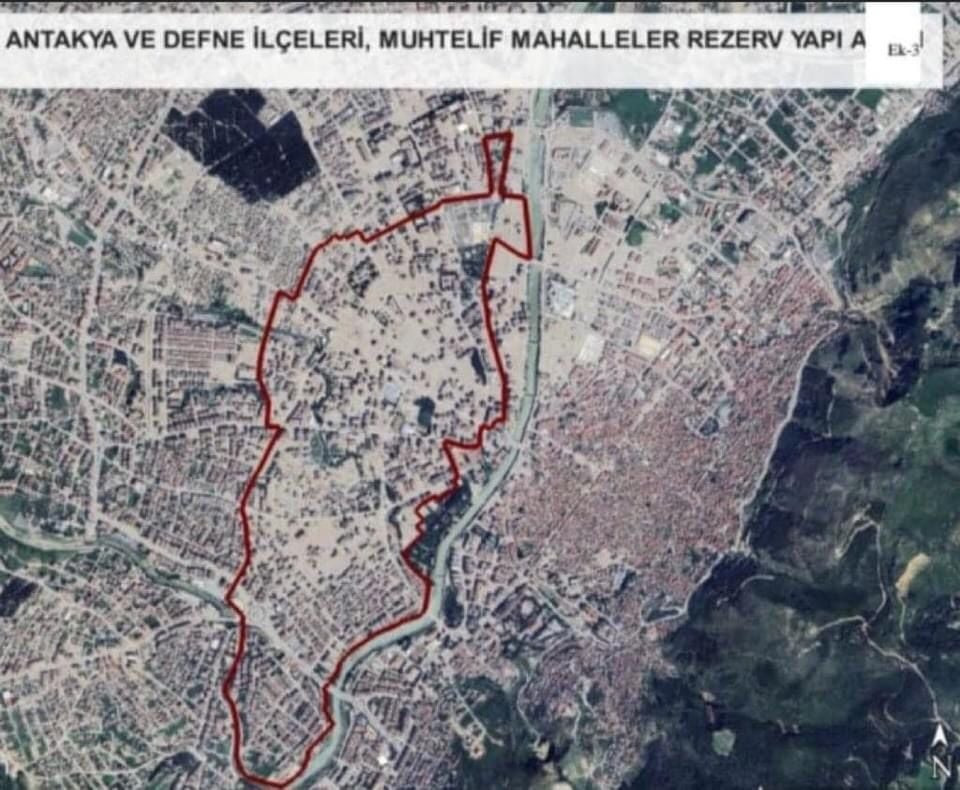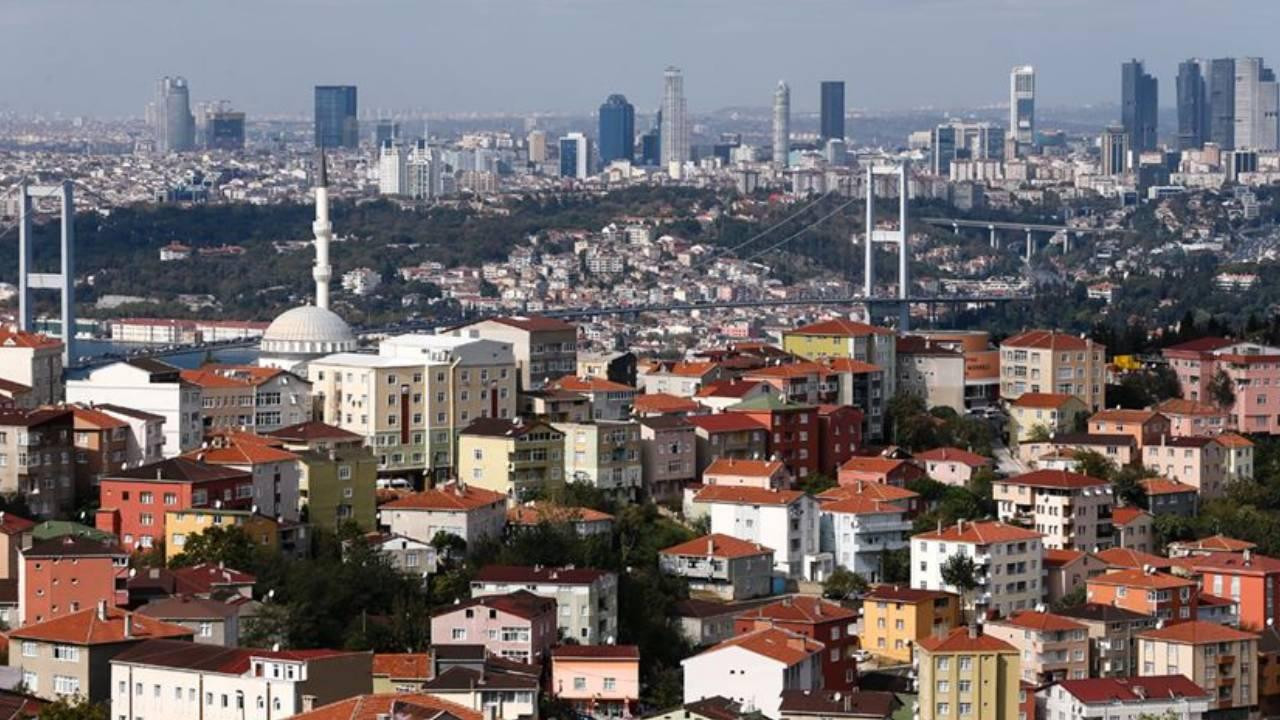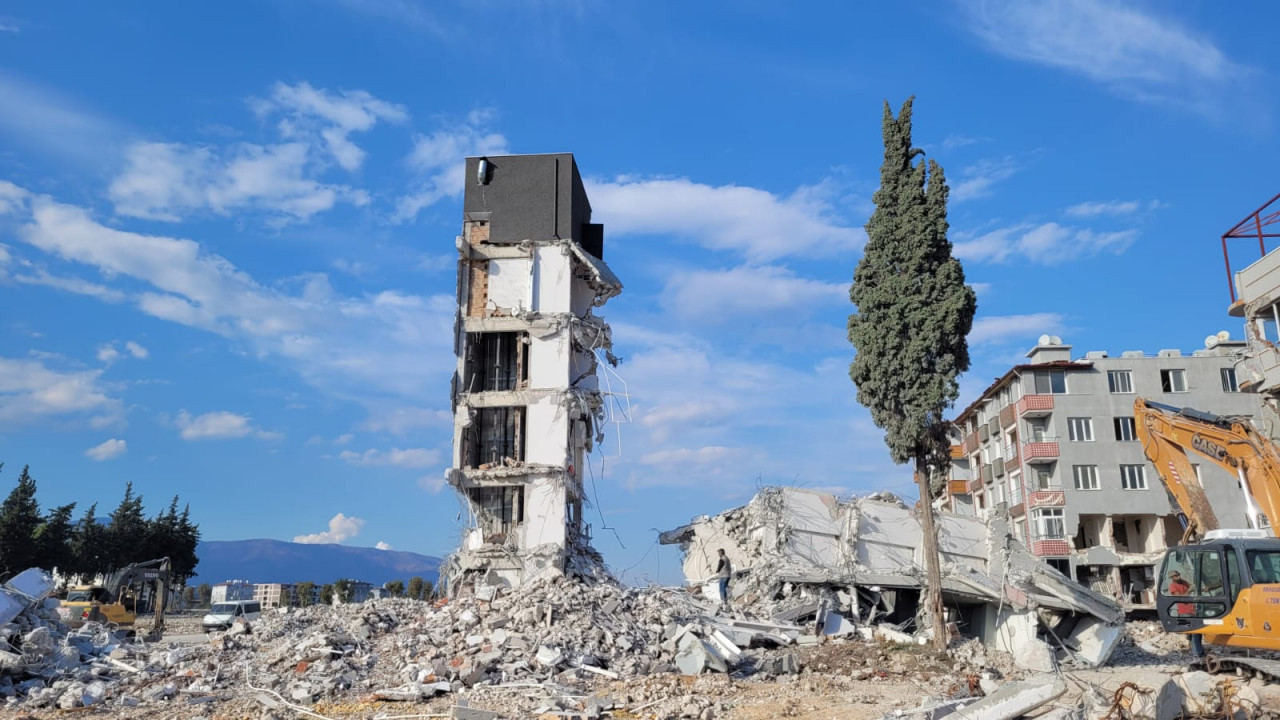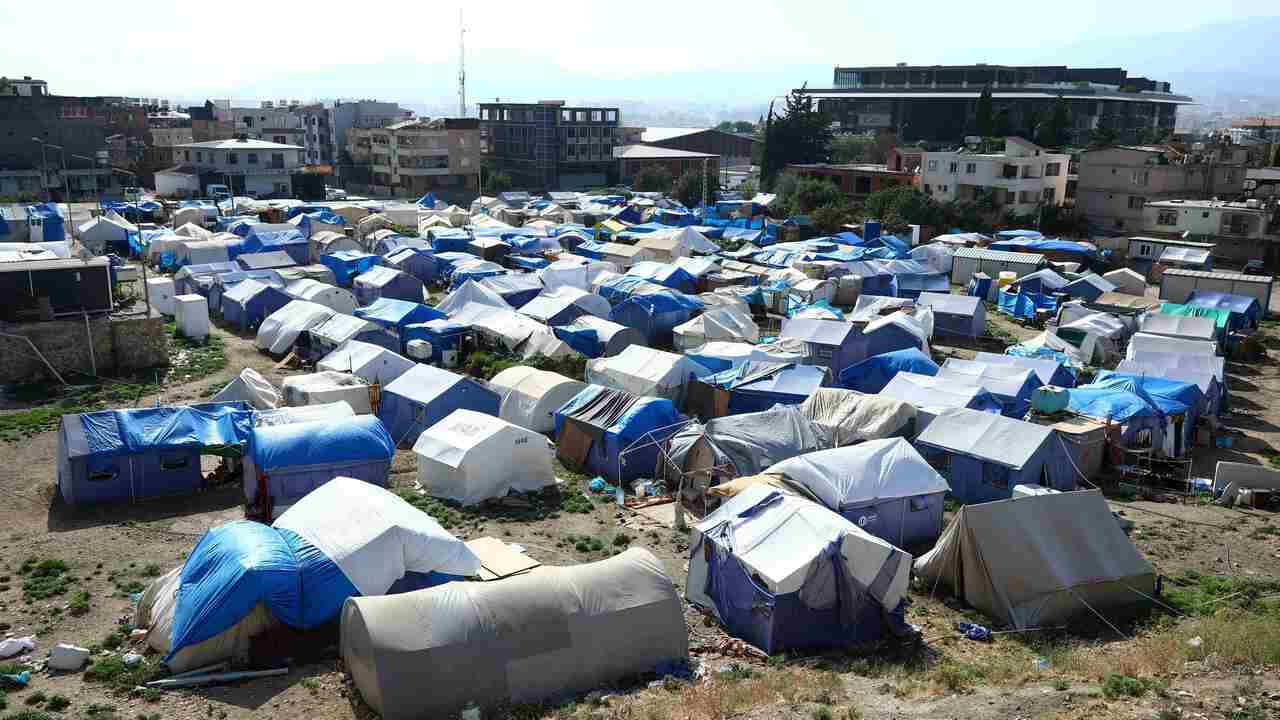Residential area in Hatay declared reserve zone for urban renewal first time in Turkey, leaving 50,000 dispossessed
A residential zone was declared as a reserve zone for the first time in Turkey in quake-torn Hatay, after the enactment of a law enabling urban areas to be declared as reserve areas for urban transformation "against earthquake risk.” At least 50,000 people would have been dispossessed as a result of the decision while residents were expected to move within two months.
Duvar English
Turkey’s Urban Transformation Directorate on Nov. 14 declared eight neighborhoods including 207 hectares of land in Antakya and Defne districts of southeastern Hatay, the province most affected by the Feb. 6 earthquakes, as reserve areas.
These lands were transferred to the Treasury and residents were expected to move within two months, online news outlet Medyascope reported on Nov. 29. The Hatay Bar Association stated that the decision would put at least 50,000 people at risk of dispossession.
Turkish Parliament on Nov. 8 enacted the amendments to the urban transformation law that allows the government to declare areas with risk-free buildings, parks, and military areas as reserve areas for urban transformation "against earthquake risk.”
Before the amendment, areas had to have no buildings on them and be located outside a residential area in order to be declared as a reserve zone. With the amendments, all areas deemed necessary can be declared as such.
President of the Hatay Bar Association Hüseyin Cihat Açıkalın underscored that this was a restriction on property rights protected by the constitution and the practice was unconstitutional.
Açıkalın said that the bar association objected to the amendment and added, "With the new law, some administrative proceedings to be initiated due to disasters are excluded from judicial control. For instance, the government restricted to make appeal against the stay of execution decisions in the applications made by individuals in cases against reserve areas.”
The Bar Association President stated this was against the rule of law and the right to appeal administrative authorities’ decisions.
In Hatay, some people continue to live in their slightly damaged houses in areas not declared as reserve areas while others are trying to strengthen their houses with solid foundations. Those whose houses are not included in the reserve area are worried.
Açıkalın said, “There is no limitation in the law, the reserve area can expand at any time. Not only in Hatay but even in Istanbul, a certain area can be declared a reserve area for any reason."

It remains unclear what will be built on the 270 hectares of land planned as a reserve in the Antakya and Defne districts. How and according to which zoning plan a "new city" will be built in this area and especially whether it will fit the diverse demographic structure of Antakya is a matter of concern for the people of Hatay.
Hatay Bar Association Environment and Urban Law Commission Chair Ecevit Alkan said that if the value of the new houses to be built in this area was worth more than the properties of the residents in this area, they would have to pay the difference if they wanted to return.
Alkan also stated that it is not clear how much money the people in this area would be paid and how long the projects would last.
Alkan expressed that locals were very concerned about city planning and to whom the buildings to be built in the areas would be sold. He stated that locals’ political, electoral, and voting rights were in danger since they would lose their rights deriving from residence.
Many critiques previously stated that these amendments were made because the government wanted to create a news channel of property transfer, especially in urban areas.

 AKP plans massive property transfer in Istanbul through urban renewal projectsDomestic
AKP plans massive property transfer in Istanbul through urban renewal projectsDomestic Mining can proceed without environmental impact assessment in quake-torn HatayEnvironment
Mining can proceed without environmental impact assessment in quake-torn HatayEnvironment Reconstruction in Turkey's quake region misses gov't targets due to economic crisisDomestic
Reconstruction in Turkey's quake region misses gov't targets due to economic crisisDomestic